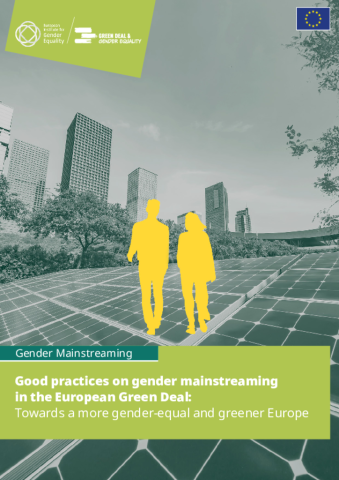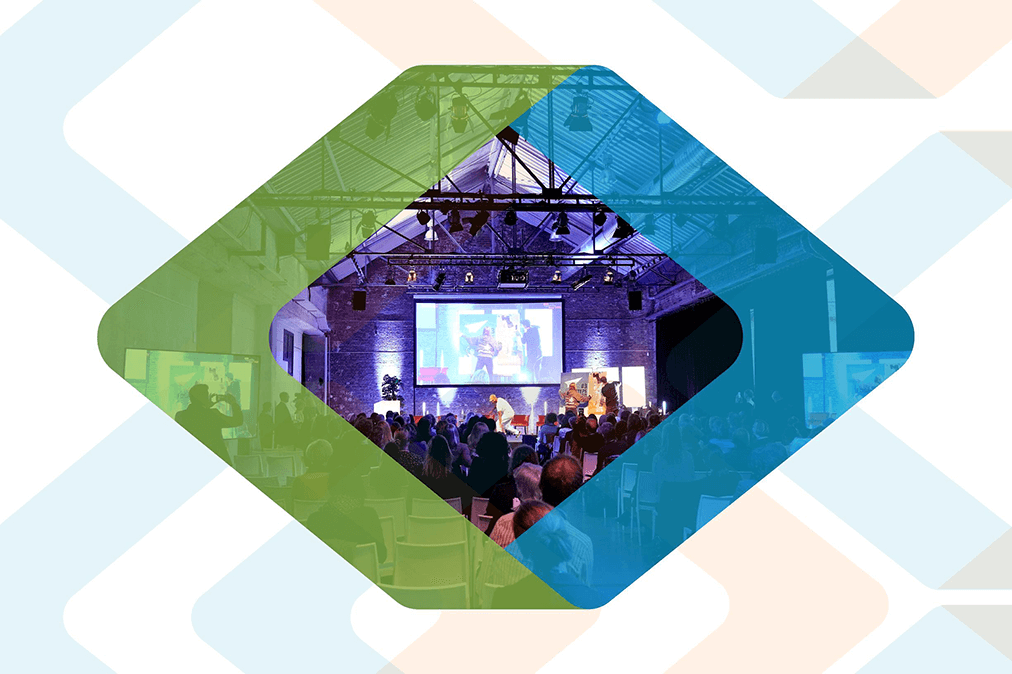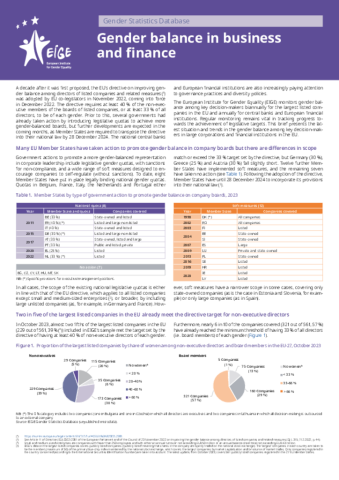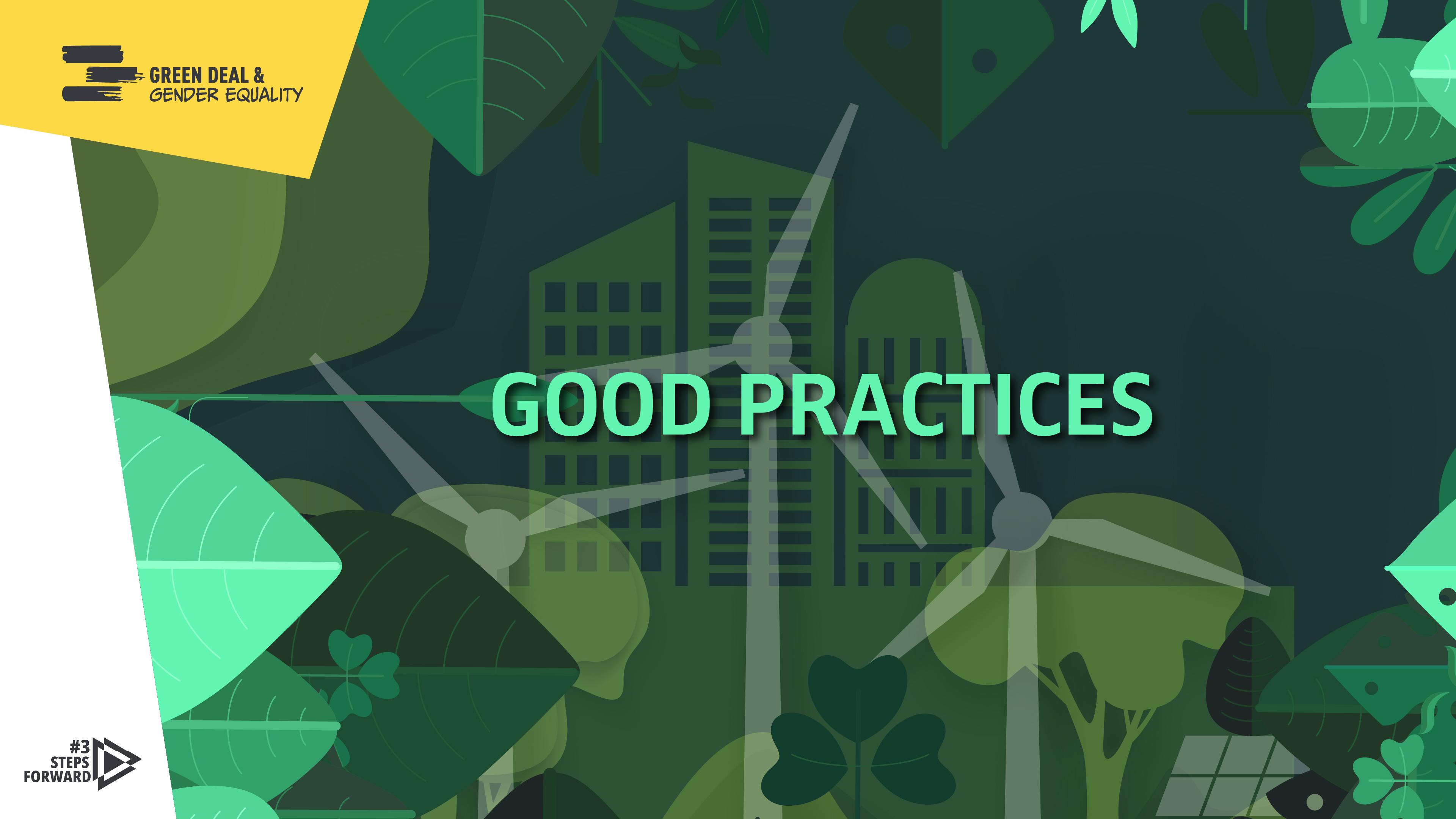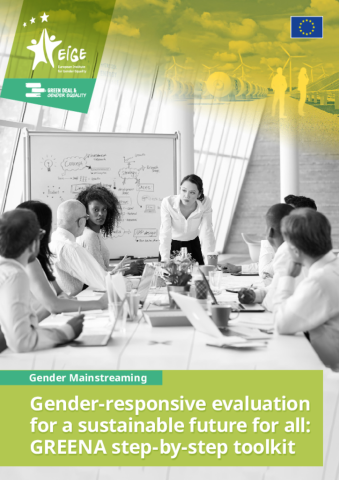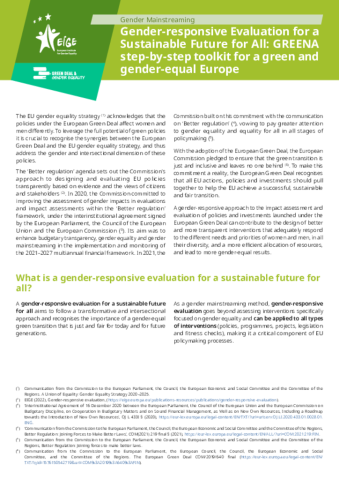
Calling all eco-entrepreneurs. Do you have a business idea that could improve the future prospects of everyone in your area, while also boosting gender equality?
The European Commission has a €19.2 billion fund to support regions in transition towards climate-neutrality, following the European Green Deal growth strategy. And they want to hear from you.
The Just Transition Fund (JTF), is the first pillar of the Just Transition Mechanism (JTM). It was set up to mitigate the consequences of the transition process. So everyone in the EU has a fair chance to benefit from opportunities stemming from the EU’s mission to climate-neutrality.
Carlien Scheele, EIGE Director said:
The impacts of climate change are not gender neutral and neither should be the funds’ allocation. A green, fair and inclusive transition must start with understanding the existing gender gaps to build and finance targeted adaptation measures. This is precisely the moment when EIGE’s toolkits come in handy. They help public authorities keep in mind the different needs of women and men throughout the development of EU-funded projects - from the definition of project selection criteria, to the involvement of partners, and to the monitoring, reporting and evaluation of results. This is how we accelerate the green transition by advancing gender equality.
“JTF is about leaving no one behind. This is our rule and our motto. It defines all our actions within the Just Transition Mechanism,” says DG REGIO’s Balbina Gluza-Czyczerska.
Balbina runs DG REGIO’s Just Transition Platform which provides a single access point for support and knowledge on Europe’s transition to a sustainable, climate-neutral economy.
“There are plenty of opportunities through the JTF. The green sector is very big. It's not enough to say that you want to be active in the green sector,” she explains.
“But if you have an idea for a project, you can show how it relates to the transition in your region and how it contributes to the implementation of JTF, I will say, don't be shy and apply!”
The JTF was set up to support those parts of Europe that are likely to find it toughest adapting to the transition changes required by the European Green Deal.
Just Transition Platform Working Groups have been set up for people from regions dominated by mining and carbon-intensive industries. They will enhance stakeholder involvement in the territories covered by the JTF.
“It's not only about being fair and leaving no one behind. It's also about enhancing opportunities for the economy, for the region,” says Balbina.
“That means involving all parties, especially underrepresented groups. Many solutions can only be found if you look at issues from different perspectives.
“Gender is really important. But it's about hearing from all groups that are not represented enough: youth, elderly people, people of ethnic origin or people with disabilities.
“Our JTP Working Groups gather people from different backgrounds so they can discuss problems and opportunities. Those discussions are intense and enriching. And so are the solutions for just transition actions.”
EIGE collaborated with DG REGIO to produce a Gender Equality toolkit to help incorporate a gender perspective when allocating JTF investments.
Download the Gender Equality toolkit
The Institute’s studies, data collections and gender equality glossary are widely referenced. EIGE’s gender mainstreaming tools are key resources, that can help local authorities in JTF regions tackle the gendered impacts of the just transition:
“This toolkit is about involving people of all genders in this process. Many stakeholders are asking about it. We are aware that underrepresented groups need particular attention,” says Balbina.
“It's about the whole ecosystem: It's not only about reskilling the workers but also the wives and families of the workers or those impacted by transition process’.
“For instance, the JTP Working Groups discuss vocational training for all the jobs in the green sectors. Because these don’t necessarily require higher education, but they’re still crucial for the transformation.”
“These transition pathways and skills are important. But it’s also about creating SMEs, supporting circular economy, finding opportunities for sustainable tourism after regeneration of sites, stopping the regional brain drain and diversifying the economy.”
“This transformation process is sometimes painful and costly. But we should see it as an opportunity. Everyone has a role to play,” she says.
“There is still work to be done at the regional level in terms of selecting the projects that support this approach while respecting the gender dimension of just transition process.”
“Ownership of the JTF programmes lies with the regions and Member States. They select the projects… they need to implement them in an inclusive way,” Balbina continues.
“We count on the regions to respect this. This partnership approach principle is very important for the Commission”.
“In each case, once a Member State or region decides on a project. We try to promote good practices with our tools and technical assistance on the ground”.
“We go local and we build a capacity for each JTF region”.
“We help them to understand their needs in the context of a just transition and explain how it's important to involve other groups of stakeholders.”
“This is a real chance for the regions to transform and become more equal in terms of budgeting, education chances and access to jobs or health infrastructure,” concludes Balbina.
“It's an opportunity to make our planet healthier and the JTF regions more gender-equal and greener. And from our side, we will provide all the technical assistance to make sure this is done properly.”
Read more about EIGE’s focus on taking #3StepsForward for a green and gender-equal Europe here
